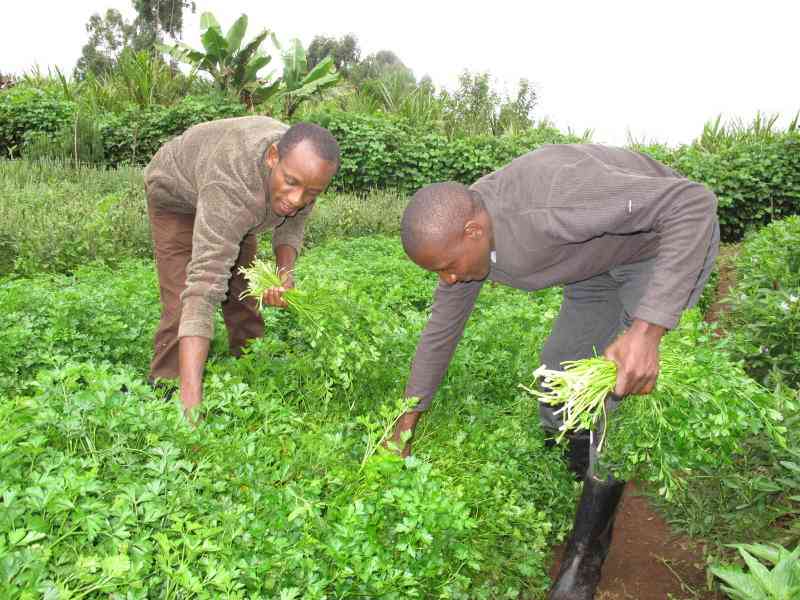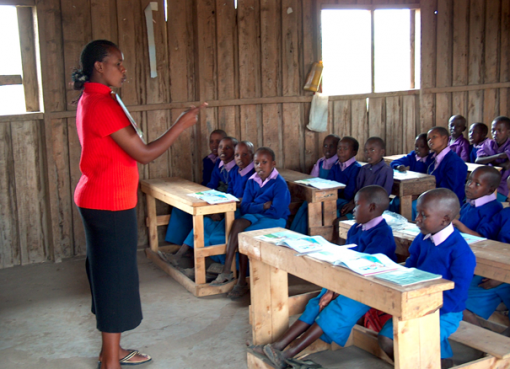Stephen Wachira is one of the many farmers in Kenya who have achieved success through cultivating a variety of herbs.
The farmer in Kimunya, located along Kenyatta Road in Kiambu County, grows a variety of herbs on his farm, including parsley, which helps him supplement his income. After months of searching for a more profitable crop, he finally decided to settle on parsley.
Armed with a capital of Sh15,000, he ventured into the farming business with knowledge gained from experienced farmers in the agribusiness.
“One can either grow the plant from seeds or buy seedlings from suppliers. The herb thrives in well-drained soil rich in organic matter, and I fertilize my plants with chicken or goat manure,” he said.
Wachira urges farmers planning to cultivate the herb to invest in quality certified seeds, stating that premium Italian Parsley seeds, like the ones he uses, can be purchased from a price range of sh1,000 to sh 4,000, depending on the packaging.
“Once Parsley is planted, it needs to be carefully tended to for optimal yields. It is important to maintain consistent soil moisture through deep irrigation whenever the top inches of soil feel dry, while also ensuring that the plants are not waterlogged. The herb takes three months to reach maturity and can be harvested for up to six months,” added Wachira.
A kilogram of parsley will then sell for anywhere between Sh100 and Sh150 depending on the current market demand.
He earns between Sh100,000 to Sh150,000 by selling 1,000 kilos of the herb from his half-acre farm at a price ranging from Sh100 to Sh150 per kilo.
The farmer noted that there was a growing local demand for Parsley, as some hotels and herbal juice manufacturers are using it as a garnish for their food.
However, most of the locally grown Parsley is still exported to international markets.
Wachira recommends that those considering farming should first identify a reliable market, assess their soil quality, and implement effective management techniques.
He also suggests visiting established farmers in the same field, sourcing high-quality seeds, and seeking expert guidance.
By Hellen Lunalo




